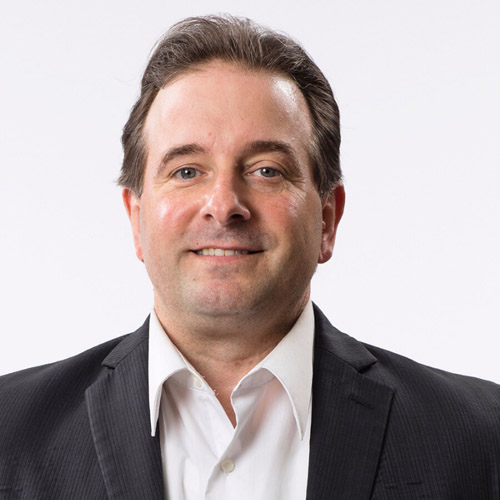AAFP: Evidence for Mental Health Professionals
Presented by: David DeMatteo, JD, PhD, ABPP
 This on-demand professional training program on Evidence for Mental Health Professionals is presented by David DeMatteo, PhD, ABPP in partnership with the American Academy of Forensic Psychology (AAFP).
This on-demand professional training program on Evidence for Mental Health Professionals is presented by David DeMatteo, PhD, ABPP in partnership with the American Academy of Forensic Psychology (AAFP).
This on-demand professional training program focuses on evidence – expert reports and testimony – provided by mental health professionals in the context of criminal and civil legal proceedings.
This program provides a concise legal primer, describes the history and current roles of experts in the U.S. justice system, and examines the admissibility standards for expert evidence provided by governing case law (e.g., Frye, Daubert, Kumho, Joiner) and various rules of evidence (e.g., Federal Rules of Evidence, Federal Rules of Civil Procedure, Federal Rules of Criminal Procedure).
This program also covers other topics related to the provision of expert reports and testimony by mental health professionals in criminal and civil legal proceedings, including the various bases of expert testimony, the rule against hearsay, responding to subpoenas, ethics, and professionalism, the role of discovery, testifying to a “reasonable degree of scientific certainty,” strategies for providing testimony (direct-exam and cross-exam), and expert immunity. Best-practice standards for data gathering and data presentation are also discussed.
Upon completion of this training, participants will be able to:
Key topics covered in this training include:
Introduction to Expert Evidence
Role of mental health professionals as experts
Overview of criminal and civil legal contexts
Legal Primer and Historical Context
History and evolution of expert roles in the U.S. justice system
Admissibility standards: Frye, Daubert, Kumho, Joiner
Applicable rules: Federal Rules of Evidence, Civil Procedure, and Criminal Procedure
Bases and Limitations of Expert Testimony
Foundations of expert opinion
The rule against hearsay
Testifying to a “reasonable degree of scientific certainty”
Practical and Ethical Considerations
Responding to subpoenas
Professionalism and ethics in testimony
Expert immunity
Courtroom Strategies and Processes
Role of discovery
Direct and cross-examination techniques
Effective communication of complex findings
Best Practices in Reports and Testimony
Standards for data gathering
Organizing and presenting findings clearly and persuasively

We are proud to partner with the American Academy of Forensic Psychology (AAFP) for this training. AAFP is a non-profit organization of board-certified forensic psychologists whose mission is to contribute to the development and maintenance of forensic psychology as a specialized field of study, research, and practice. The Academy does this by providing high-quality continuing education workshops, providing a forum for the exchange of scientific information among its members, and conferring awards upon outstanding students and practitioners in the field of forensic psychology.
Palo Alto University, Continuing & Professional Studies (CONCEPT) is approved by, recognized by, or maintains sponsorship provider status with the following boards and agencies. We maintain responsibility for all content in our CE/CPD programs. For more information, visit here.
American Psychological Association (APA): Approved sponsor of continuing education for psychologists.
Association of Social Work Boards (ASWB): Approved continuing education provider (ACE program, Provider #1480), 11/22/2023–11/22/2026.
Canadian Psychological Association (CPA): Approved to sponsor continuing education for psychologists.
National Board for Certified Counselors (NBCC): Approved Continuing Education Provider (ACEP No. 7190).
Palo Alto University, Continuing and Professional Studies (CONCEPT) is approved by the American Psychological Association to sponsor continuing education for psychologists. Palo Alto University, Continuing and Professional Studies (CONCEPT) maintains responsibility for this program and its content. Palo Alto University, Continuing and Professional Studies (CONCEPT), is approved by the Canadian Psychological Association to offer continuing education for psychologists. Palo Alto University, Continuing and Professional Studies (CONCEPT), SW CPE is recognized by the New York State Education Department’s State Board for Social Work as an approved provider of continuing education for licensed social workers #SW-0356 and the New York State Education Department’s State Board for Mental Health Practitioners as an approved provider of continuing education for licensed mental health counselors. #MHC-0073. Palo Alto University, Continuing and Professional Studies (CONCEPT) has been approved by NBCC as an Approved Continuing Education Provider, ACEP No. 6811. Programs that do not qualify for NBCC credit are clearly identified. CONCEPT Professional Training, #1480, is approved to offer social work continuing education by the Association of Social Work Boards (ASWB) Approved Continuing Education (ACE) program. Organizations, not individual courses, are approved as ACE providers. State and provincial regulatory boards have the final authority to determine whether an individual course may be accepted for continuing education credit. CONCEPT Professional Training maintains responsibility for this course. ACE provider approval period: 11/22/23-11/22/26. Social workers completing this course receive (clinical or social work ethics) continuing education credits.